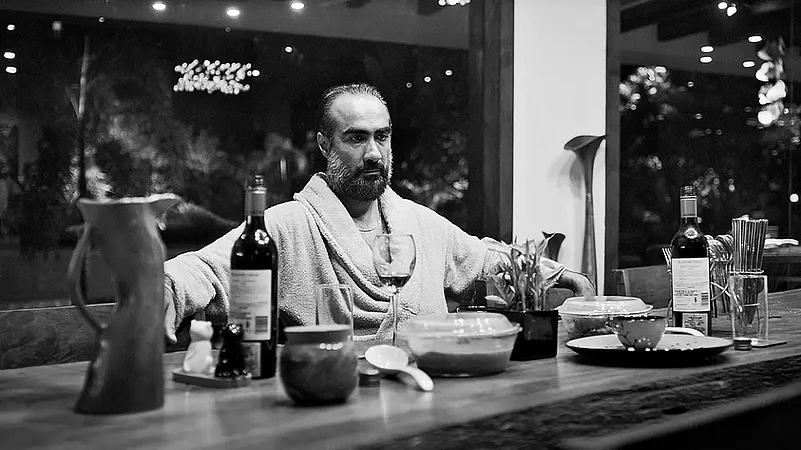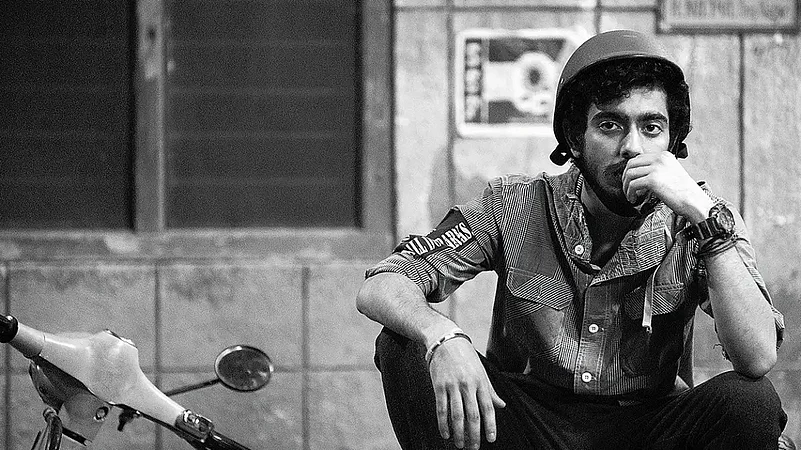Covid 19 has been a disaster; it destroyed livelihoods, made people walk for thousands of miles and killed many in India. Our economy is in tatters, jobs are not there, prices are rising, and politicians of every hue and colour are playing dirty tricks to keep the power or gain it. I feel sad when I say Covid has been good for me as a filmmaker. I was labelled as an independent filmmaker, and usually producers and OTTs would like to stay away from you when you are labelled one. But Covid and the vast library of international content were about to change it all in a few months.
The lockdown came as a boon for OTTs. Cinemas, restaurants and malls were shut. People had so much more time on their hands that they experimented and discovered great content irrespective of language, be it Korean, Spanish or Malayalam. Probably it would have taken another five years for the audience to mature and accept content like The Great Indian Kitchen, Squid Game or Tabbar, but lockdown made it possible in a year. OTTs also realised that they had a golden chance to convert cinema-going audiences and keep them glued to their screens at home.
India had already been witnessing a tough time in terms of content production even before the lockdown. Netflix, Amazon Prime, Disney+Hotstar, SonyLIV, Zee5, MX Player and many others were producing the content, along with theatrical films and TV serials. There was already so much work that established directors couldn’t do it all. OTTs and producers needed fresh talent, and that’s how someone like I got summoned.

A few more established names were asked to do Tabbar, but they couldn’t agree to dates. I just happened to be in the right place at the right time. I was lucky that both my producer Ajay Rai and SonyLIV, have an adventurous streak to take risks. But none of us knew that it would work out so well. When Tabbar found appreciation from the audience and critics, it made me think. What has changed? Why did a series like Tabbar do so well with audiences? I have some theories that I would like to share here, and I believe indie can be the new mainstream.
I approached Tabbar just like the way I had approached all my previous projects. I was interested in what I was trying to say with the story. What is the profound truth I wanted to illuminate? At no point did I think, “Oh, let me do it this way, because it works with the audiences”. The truth is that nobody knows what works with audiences. If we knew that, films and series that nobody watches would never be made.
There are two ways to make films. One is to tick all the boxes that one thinks makes it a commercial film, and the second is to think deeply and find out what are you trying to say with the story. Some mainstream filmmakers care about what they want to say, but many don’t. They know that the “correct” release date, star power and big-budget promotion would bring the audiences to cinema halls, and if the film did well over a Friday, Saturday and Sunday, it would earn a minimum of Rs 100 crore. There was a time when a film had to run for at least a week to recover its money, and several weeks to make it profitable. That was also when filmmakers were in touch with the reality of our country and made films around it.

Then came the marketing wizards and changed the entire system. All that was needed was proper packaging, gloss and rigging of the system, so that audiences had no choice but to come and watch a product on the weekend. And this worked for a while. But now audiences have a choice; if you still serve them something dumb, they would rather stay at home and watch a Korean film.
This brings me back to my statement that indie can be the new mainstream. As indie filmmakers, we don’t have access to stars, neither do we have a big budget to produce our films. Usually, we don’t even have a single penny for its marketing. The only thing we have is a burning passion for telling stories.

The real struggle of indie filmmakers starts after they have made their films. Once finished, it usually goes to a few festivals, and then if you are fortunate, it will find a limited theatrical release, or it will be quietly dropped by one of the OTTs, without any promotions. The only way for indie filmmakers to keep making films is by becoming so good at what they do that their work can no longer be ignored. It took me four short films and a feature film before I was considered worthy of directing Tabbar. And that gives indie filmmakers a skill-set that mainstream filmmakers may never have. Paatal Lok, Geeli Puchi, Delhi Crime and Tabbar are some examples of what indie filmmakers can achieve when they find freedom and resources.
(This appeared in the print edition as "The New Mainstream")
(Views expressed are personal)
ALSO READ
Ajitpal Singh is a director & writer, most recently of tabbar





















